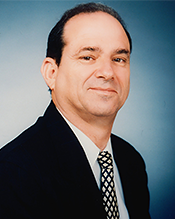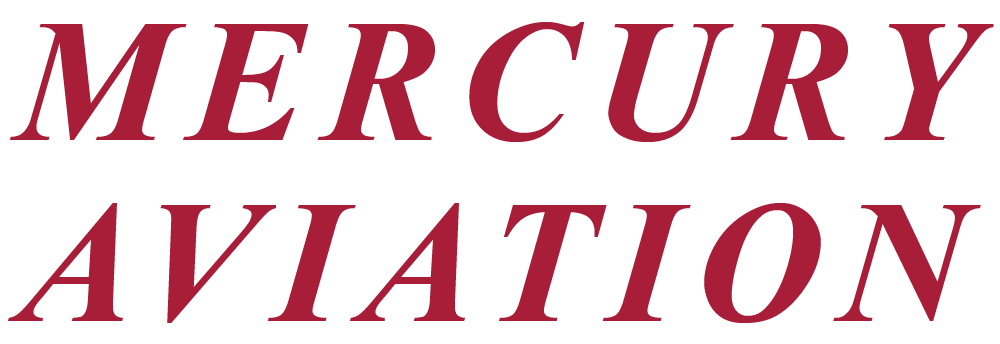Leading Mercury World Cargo to Global Success
Leading Mercury World Cargo to Global Success
 When asked to provide memories of his 35 years with Mercury Air Cargo, Zack Vernikovsy remarked “time certainly flies by quickly.” Now Executive Vice President and General Manager of Mercury World Cargo/Jupiter Air Services, Zack has been part of the leadership that shaped it into the successful global company it is today. He continues to seek out new opportunities.
When asked to provide memories of his 35 years with Mercury Air Cargo, Zack Vernikovsy remarked “time certainly flies by quickly.” Now Executive Vice President and General Manager of Mercury World Cargo/Jupiter Air Services, Zack has been part of the leadership that shaped it into the successful global company it is today. He continues to seek out new opportunities.
An Israeli-native, Zack worked in the airline industry in that country before moving to the U.S. Facing challenges gaining employment in a similar supervisory position in his new country, Zack started from scratch; joining Mercury Air Group in cargo operations. He rose quickly in the company.
Expansion in the 1980s
When Zack started in 1985, the company provided cargo handling services in a small 10,000 square foot facility rented at LAX, adjacent to the head office. They continued to increase space in their facilities.
Zack says, “The company has since grown into the largest air cargo handler at LAX. It’s also expanded into San Francisco and San Jose.” Mercury Air Cargo currently has close to 1,000 employees.
Recognizing that more profit was to be made in marketing and sales, Mercury Air Cargo started a space brokerage division buying unused capacity on airlines and selling it to freight forwarders and shipping companies, while still providing cargo handling services to airlines.
According to Zack, “We made lots of money selling unused capacity. For example, at the time, Tower Air was flying 747s coast to coast with unused cargo capacity. We made a deal to buy their daily capacity and did very well.”
The company made similar deals with other airlines. However, one problem arose. To make this work, Mercury Air Cargo needed to use Tower Air documents. The company wanted its own air bill while building this side of the business in order to have control of the revenues and activity. That would entail becoming an airline.
“We made the investment and formed a small airline operating within California, a small-type all-cargo aircraft registered with the FAA, and used it to do business as Mercury World Cargo,” remembers Zack. It gave the company the ability to join IATA and use the billing clearing house. This allowed for building relationships with other airlines and developing more partnerships similar to that with Tower Air. The company expanded worldwide.
Going Worldwide
According to Zack, the obvious next step was to set up sales offices globally.
From the launching of Mercury World Cargo, Zack helped build relationships and agreements with 60 airlines to move cargo under the company name.
He recalls, “The plan was to provide services to and from locations tough to serve. These locations are those with no direct service from one place to the other. We identified Asia and South America as points that the U.S. can connect to very well, as well as Central America and Europe. We figured we’d be the company to connect all of the different airlines with our documentation and provide seamless service.”
Zack established sales offices using partnerships, general sales agents, and interline agreements worldwide. To support growth, the company has formed Mercury Americas based in Miami to manage the sales and marketing.
Forming another company named Jupiter Airline Services separated the airline sales activity from brokerage of freight forwarding services. Under Jupiter Airline Services, Zack signed agreements with two Chinese carriers, Xiamen Air and Sichuan Airline to be their cargo sales agent. This helped build good business traffic to China and the company had done well with this new product for the last five years.
What’s Next
After the establishment of many successful ventures and partnerships, Zack is working on his “next trick” by seeking out new opportunities.
Zack has determined that Vietnam generates lots of cargo without space to accommodate it. He’s working on agreements with an airline to move cargo from Vietnam to Europe and Asia. Exports are expanding due to the trade war with U.S. and China. He plans to start this business with a goal of generating $25,000-30,000 in profit every month.
In addition, he’s identified resort areas in Asia where people vacation; thus, not much cargo space is used on the airline. Zack is finding a way to use this airline space and get a good rate from them to market for Vietnamese cargo.
“It’s all looking very positive,” says Zack.
A Global Leader in Aviation Services
Mercury Aviation has been providing services to the aviation industry and the U.S. Government for more than 60 years. We believe that our team is the best, and so is our offering. Please let us know how we can meet your aviation needs.
Contact UsContact Us
Mercury Aviation Companies LLC
Corporate Headquarters
2780 Skypark Dr
Torrance, CA 90505
Phone: (310) 827-2737
Fax: (310) 827-6897
Send Us A Message.
Terms of Use • Privacy Policy
© Mercury Aviation Companies LLC
All Rights Reserved

